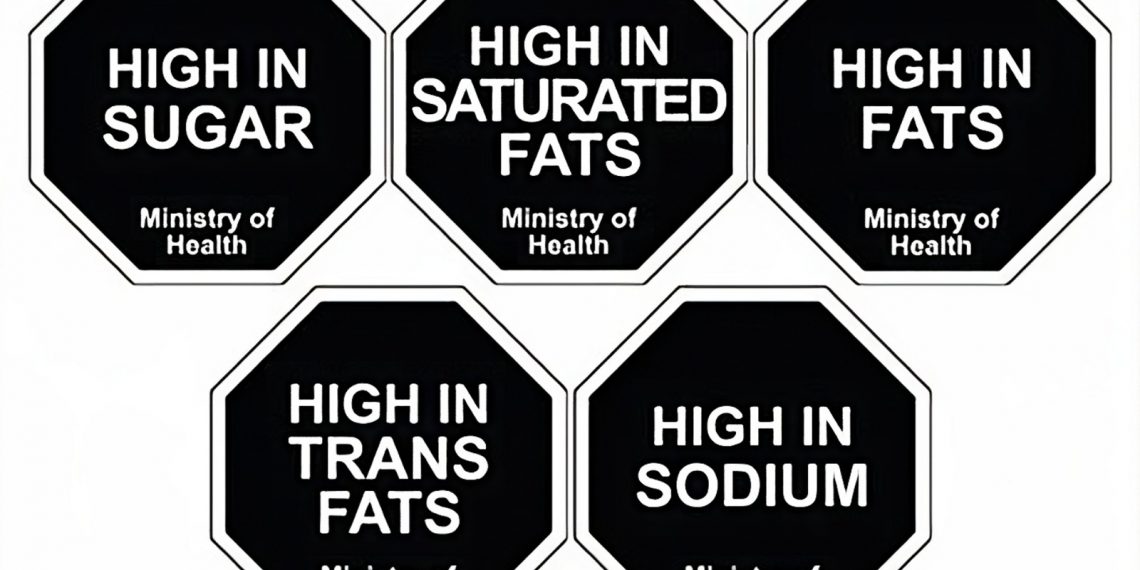As diet-related diseases continue to rise in Kenya, health experts and advocacy groups are pushing for the introduction of mandatory Front-of-Pack Warning Labels (FOPWL) as a key public health measure.
According to the experts, Front of Pack Warning Labels (FOPWL), which clearly indicate high levels of sugar, salt, and unhealthy fats in food products will empower consumers to make healthier dietary choices.
Celine Awuor, CEO of the International Institute for Legislative Affairs (IILA), highlights the significance of FOPWL in influencing consumer habits.
“FOPWL empowers consumers to make informed choices about their diets, which supports healthier eating habits,” Awuor explained. “These labels are designed to be clear and straightforward, warning consumers about foods high in nutrients of concern. By displaying the information ‘high in sugar/salt’ on the front panel of the food package, FOPWL helps people make better nutritional choices and think more carefully about what they eat.”
Public health advocates argue that the impact of these labels extends beyond individual choices, influencing broader policies that could reshape Kenya’s food environment. Timothy Wafula, head of the Health and Governance Thematic Area at the Kenya Legal & Ethical Issues Network on HIV and AIDS (KELIN), emphasized the role of FOPWL in regulating food marketing.
“These labels not only inform consumers but can also inform measures on restricting marketing of unhealthy foods to children,” Wafula noted. “Through policies that control how unhealthy foods are promoted, FOPWL can guide families toward healthier choices and protect future generations from diet-related diseases.”
Consumer transparency is another major issue that FOPWL seeks to address. Imelda Namayi, Technical Lead for Health and Education at the National Council of Churches of Kenya (NCCK), underscored the right of consumers to clear nutritional information.
“Consumers deserve to know if a product has too much sugar, salt, or fat,” Namayi stated. “FOPWL meets this need for transparency, helping individuals understand the nutritional value of the products they are eating.”
The urgency of implementing such measures is underscored by the rising prevalence of diet-related non-communicable diseases (NCDs) in Kenya. Dr. Catherine Karekezi, Executive Director of the Non-Communicable Disease Alliance of Kenya (NCDAK), stressed the need for immediate action.
“The rising number of diet-related diseases highlights the urgent need for effective nutritional labeling,” Karekezi said. “Mandatory FOPWL can serve as a preventive measure by discouraging the consumption of unhealthy foods and promoting healthier alternatives. Providing consumers with the knowledge they need to make better choices can reduce the incidence of these diseases, which often require life-long management and place a heavy burden on our healthcare system.”
The effectiveness of FOPWL is supported by global research. Dr. Shukri Mohamed, Associate Research Scientist at the African Population and Health Research Center (APHRC), pointed to successful case studies from other countries.
“Research from many countries shows that FOPWL helps reduce the consumption of foods high in sugar, salt, and fat,” Dr. Mohamed explained. “This evidence supports introducing similar labels in Kenya to help address urgent public health issues. By learning from countries that have successfully used these labels, Kenya can take a similar approach to improve public health.”
The push for mandatory FOPWL in Kenya represents a significant step toward addressing diet-related health challenges. By helping consumers make informed choices, shaping public policies, and curbing the rise of non-communicable diseases, FOPWL could play a crucial role in improving the nation’s overall health. With strong backing from health experts, consumer advocates, and civil society groups, the introduction of these labels is not only beneficial but essential for a healthier Kenya.















